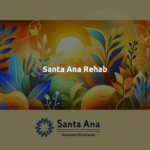Understanding Alcohol Addiction
Alcohol addiction, also known as alcoholism or alcohol use disorder, is a chronic disease characterized by uncontrolled drinking and preoccupation with alcohol despite negative consequences. For the family and friends of someone struggling with alcoholism, it can be painful and confusing to watch their loved one continue drinking even though it is clearly causing harm.
The good news is that alcohol addiction is a treatable disease. With compassion, education, boundary-setting, self-care, and professional treatment, families can support their loved one’s recovery journey.
Recognizing the Signs
Some common red flags that indicate alcohol addiction include:
- Drinking alone frequently
- Hiding or lying about drinking habits
- Making excuses to drink or drinking at inappropriate times
- Failed attempts to cut back or quit entirely
- Irritability, mood swings, or restlessness when not drinking
- Risky behavior like drunk driving
Paying attention to these warning signs and having open conversations about concerns can motivate the drinker to get help before things escalate further.
Understanding It’s a Disease, Not a Choice
It’s important for family and friends to understand alcoholism is a legitimate medical condition – it is not a moral failing or lack of willpower. Genetics, brain chemistry, trauma, and one’s environment all play a role in addiction.
Viewing alcoholism through a lens of compassion rather than judgment can help loved ones maintain emotional closeness during this difficult time. Getting educated about the science behind addiction can also help friends and family members empathize with the drinker’s struggle.
Setting Boundaries with Love
While supporting someone with alcoholism, it’s essential to set healthy boundaries around unacceptable behaviors. For example, making it clear that violence, verbal abuse, drunk driving, stealing, etc. will not be tolerated.
Boundaries are most effective when established from a place of care – the goal being to protect one’s own mental health while also motivating the drinker to get help. Making concrete consequences clear in advance helps reinforce these boundaries.
Letting natural consequences play out instead of shielding the drinker from the results of their behavior also allows them to experience the severity of their circumstance, inspiring a desire for change.
Self-Care and Support Systems
Caring for someone with alcoholism can be exhausting and emotionally taxing. That’s why self-care is so vital – family and friends must make their own mental wellbeing a priority.
Healthy self-care strategies include getting enough sleep, making time for fun and relaxation, turning to trusted friends for encouragement, establishing a support group, seeing a counselor, or joining a program like Al-Anon that offers education and connection for families affected by addiction.
Setting aside activities, hobbies and relationships that replenish one’s spirit helps avoid burnout and caregiver fatigue. Self-care allows family and friends to keep showing up for their loved one from an emotionally healthy place.
Next Steps in Seeking Help
If expressing concern, providing education about alcoholism, establishing boundaries, allowing natural consequences and offering emotional support fails to motivate change, the next step is guiding one’s loved one toward professional treatment and recovery groups.
Here are some options to explore:
- Meet with a doctor or counselor – they can assess if intensive inpatient treatment is necessary or if outpatient counseling along with support groups like AA or SMART Recovery could help establish sobriety.
- Contact local addiction treatment centers – to learn about available programming and insurance coverage for various options like inpatient care, intensive outpatient treatment, medication-assisted treatment, dual diagnosis support, etc.
- Consider an Intervention – sometimes formally sitting down with a professional interventionist, doctor, counselor and other loved ones can give the drinker a wake-up call to seek intensive treatment. Success rates are as high as 90% with proper professional guidance.
- Explore financial assistance programs – many treatment facilities offer scholarships, sliding scale fees, payment plans or funding through state and local programs that ease the financial barriers to rehab access. Transportation assistance may also be available.
- Support groups for family & friends – Al-Anon, SMART Recovery Family & Friends – attending meetings helps loved ones process their own emotions and learn how to detach with love while refusing to enable addictive behaviors.
Getting a professional assessment and customized treatment plan tailored to the drinker’s severity level best equips them to establish sobriety long-term. Ongoing aftercare with counseling, support groups, sober living, etc. improves the chances of sustained recovery.
Bringing Hope through Connection
Addiction inflicts pain and isolation – not just on the drinker but everyone close to them. It’s profoundly comforting when family and friends reach out with empathy, compassion and understanding rather than shame, judgment or avoidance.
Forming community to walk through the darkness together until the light returns – that is love in action. This kind of loving connection has the power to inspire change and bring hope where none existed before.
For additional addiction education and resources, check out:

